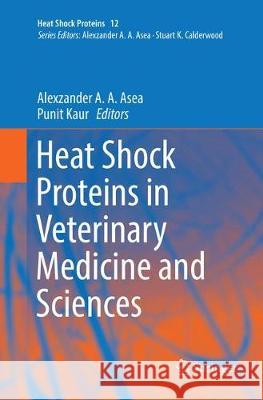Heat Shock Proteins in Veterinary Medicine and Sciences: Published Under the Sponsorship of the Association for Institutional Research (Air) and the A » książka
topmenu
Heat Shock Proteins in Veterinary Medicine and Sciences: Published Under the Sponsorship of the Association for Institutional Research (Air) and the A
ISBN-13: 9783030103651 / Angielski / Miękka / 2018 / 398 str.
Heat Shock Proteins in Veterinary Medicine and Sciences: Published Under the Sponsorship of the Association for Institutional Research (Air) and the A
ISBN-13: 9783030103651 / Angielski / Miękka / 2018 / 398 str.
cena 602,40
(netto: 573,71 VAT: 5%)
Najniższa cena z 30 dni: 578,30
(netto: 573,71 VAT: 5%)
Najniższa cena z 30 dni: 578,30
Termin realizacji zamówienia:
ok. 22 dni roboczych.
ok. 22 dni roboczych.
Darmowa dostawa!
Kategorie:
Kategorie BISAC:
Wydawca:
Springer
Seria wydawnicza:
Język:
Angielski
ISBN-13:
9783030103651
Rok wydania:
2018
Wydanie:
Softcover Repri
Numer serii:
000339731
Ilość stron:
398
Oprawa:
Miękka
Wolumenów:
01











